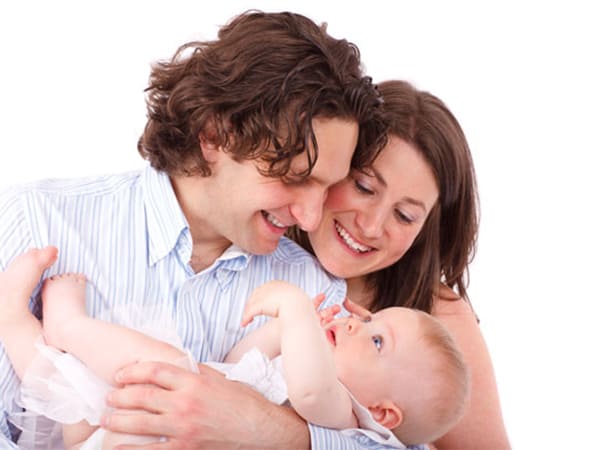Just In
- 7 hrs ago

- 8 hrs ago

- 11 hrs ago

- 11 hrs ago

Don't Miss
- Finance
 3 Bonus, 1:2 Split, 38 Dividends: Rs 1,915 Midcap IT Stock To Pay 360% Dividend After Q4 Profit Rises
3 Bonus, 1:2 Split, 38 Dividends: Rs 1,915 Midcap IT Stock To Pay 360% Dividend After Q4 Profit Rises - Movies
 Arti Singh Wedding: Groom Dipak Chauhan’s First Look Out As He Reaches Venue With Baraat - VIRAL VIDEOS
Arti Singh Wedding: Groom Dipak Chauhan’s First Look Out As He Reaches Venue With Baraat - VIRAL VIDEOS - Sports
 T20 World Cup 2024: Waqar Younis Predicts Pakistan's 15-Man Squad; Drops This Express Pacer
T20 World Cup 2024: Waqar Younis Predicts Pakistan's 15-Man Squad; Drops This Express Pacer - News
 King Charles Grants Royal Assent: UK's Rwanda Deportation Plan Now Law
King Charles Grants Royal Assent: UK's Rwanda Deportation Plan Now Law - Automobiles
 Royal Enfield Unveils Revolutionary Rentals & Tours Service: Check Out All Details Here
Royal Enfield Unveils Revolutionary Rentals & Tours Service: Check Out All Details Here - Technology
 Elon Musk’s X Is Launching a TV App Similar to YouTube for Watching Videos
Elon Musk’s X Is Launching a TV App Similar to YouTube for Watching Videos - Education
 AICTE introduces career portal for 3 million students, offering fully-sponsored trip to Silicon Valley
AICTE introduces career portal for 3 million students, offering fully-sponsored trip to Silicon Valley - Travel
 Escape to Kalimpong, Gangtok, and Darjeeling with IRCTC's Tour Package; Check Itinerary
Escape to Kalimpong, Gangtok, and Darjeeling with IRCTC's Tour Package; Check Itinerary
How Relationship Problems Of New Parents Affect Children's Behaviour
Having a baby is bliss as you have a creature who has little of both you and your partner. However, having a baby is also challenging. One day you are two and the other day you are three. You won't be able to spend time with each other like before.

There will be times when you and your partner will be having disagreement and conflicts. Both of you will be going through emotional struggles.
Why Do New Parents Go Through Emotional Issues
A study done on parenting by Professor Claire Hughes, from Cambridge's Centre for Family Research, highlights the need for considering the emotional well-being of both the parents to determine the behavioural and emotional influence of the child [1] . The child's emotions and behaviour were then studied at the age of 14 and 24 months to determine the kind of behavioural issue the child may develop in the upcoming years.
It was later found that the well-being of first-time expectant mothers affected the child's behaviour directly until the child turned two years old. Mothers going through stress, frustration, and prenatal stress delivered the child who later showed behavioural issues such as restlessness, volatility, throwing tantrums, etc.
Below are the reasons why parents become emotionally vulnerable:
One stops caring for self: Since the newborn requires intensive care and affection, parents, especially mothers, give most of the time to their children. There is no fixed time for newborns to feel hungry or poop. Mothers have to be on their toes to feed and do the needful for their children. This consumes a major time of the mothers. They don't get time for themselves. This can trigger anxiety and irritation among mothers.
Lack of physical intimacy: It is quite obvious to lavish the entire time on the crying newborn. This leads to tiredness and lack of sleep. Moreover, after having a newborn, couples do not prefer indulging in physical intimacy and prefer being with the child. However, this might lead to frustration and a feeling of getting neglected.
Different parenting strategies: Both the mother and father come from different environment as they have been raised differently. It is obvious that both of them want to give the best to their kids and, therefore, one parent's fast-and-loose style of child-rearing might be at odds with the other parent's more focused and disciplined approach.
Why Children Get Affected By Seeing Their Parents Fight
Though fights are a part of every relationship, young children get affected after seeing their parents quarrel with each other. According to some scientists, "Young children can pick up on their parents' relationship problems - leaving them more likely to worry or scare easily." [1]

As a result of the emotional struggles experienced by expecting parents, children might have some behavioural problems. Not only this, children learn from the way their parents react and respond to a certain situation. If parents are always screaming and playing the blame game, children will do the same.
Prof Claire Hughes has said, "For too long, the experiences of first-time dads have either been sidelined or treated in isolation from that of mums [1] . This needs to change because difficulties in children's early relationships with both mothers and fathers can have long-term effects."
What Behavioural Issues Are Being Faced By Kids
Some children who are of two years old and above might exhibit some common emotional problems such as unhappiness, anxiety, and fear. In addition to this, children might become short-tempered and stubborn. These behavioural issues are due to the prenatal and postnatal emotional struggles, lack of happiness, and emotional conflicts faced by their parents in their relationships.
The Findings
A report was published in the Development & Psychopathology conducted on 438 first-time parents who shared their experiences of emotional struggles before and after their child completed 4th, 14th and 24th months[1] .
The parents were interviewed in-person and were asked standardised questions. The parents reported how they went through depression and anxiety during the second and third trimester of their pregnancy. This continued even when their children were born and were of 4, 14 and 24 months. Parents also mentioned the kind of relationship they had with their children along with the behaviour exhibited by their children.
Prof Hughes said, "Our findings highlight the need for earlier and more effective support for couples to prepare them better for the transition to parenthood."[1]
He further said, "genetic factors are likely to play a role but they accounted for parents' mental health difficulties prior to their first pregnancy and after their child's birth."
- [1] 1. The Irish News (2019, Aug 9). New parents with relationship problems ‘can cause behaviour issues in children'. Retrieved from https://www.irishnews.com/magazine/science/2019/08/05/news/new-parents-with-relationship-problems-can-cause-behaviour-issues-in-children--1678589/
-
 pregnancy parentingWhat Are The 4 Must Have Vitamins For Kids With Diabetes?
pregnancy parentingWhat Are The 4 Must Have Vitamins For Kids With Diabetes? -
 pregnancy parentingStates On High Alert As China Grapples With Respiratory Infections: Symptoms, Do’s And Don’ts
pregnancy parentingStates On High Alert As China Grapples With Respiratory Infections: Symptoms, Do’s And Don’ts -
 healthBust Bloating: 5 Exercises Every Teenage Girl Needs For A Happy Tummy
healthBust Bloating: 5 Exercises Every Teenage Girl Needs For A Happy Tummy -
 pregnancy parentingIncreasing Reports Of STIs In Children: Tips for Parents on Educating Kids about STI Prevention
pregnancy parentingIncreasing Reports Of STIs In Children: Tips for Parents on Educating Kids about STI Prevention -
 pregnancy parentingAre You The Second Favourite Parent To Your Kid? Signs To Watch Out For
pregnancy parentingAre You The Second Favourite Parent To Your Kid? Signs To Watch Out For -
 pregnancy parentingWorld Toilet Day: 5 Ways To Teach Healthy Bathroom Habits In Kids
pregnancy parentingWorld Toilet Day: 5 Ways To Teach Healthy Bathroom Habits In Kids -
 healthAre You Really “Super Smart,” But Just Don’t Know It Yet? 4 Signs You Have A High IQ
healthAre You Really “Super Smart,” But Just Don’t Know It Yet? 4 Signs You Have A High IQ -
 pregnancy parentingTwo Wombs, Four Hearts: US Mom's Extraordinary Double Uterus Pregnancy
pregnancy parentingTwo Wombs, Four Hearts: US Mom's Extraordinary Double Uterus Pregnancy -
 pregnancy parentingChildren's Day 2023: A Glimpse Into Education Abroad: Perspectives From Indian Parents In Canada, Australia..
pregnancy parentingChildren's Day 2023: A Glimpse Into Education Abroad: Perspectives From Indian Parents In Canada, Australia.. -
 pregnancy parentingWhat Are The Mandatory Vaccines For Children In India?
pregnancy parentingWhat Are The Mandatory Vaccines For Children In India? -
 pregnancy parentingWorld Pneumonia Day: Risk Factors Of Pneumonia In Children
pregnancy parentingWorld Pneumonia Day: Risk Factors Of Pneumonia In Children -
 pregnancy parentingChildren’s Day: 5 Books You Can Introduce To Kids Above 10 Yrs
pregnancy parentingChildren’s Day: 5 Books You Can Introduce To Kids Above 10 Yrs


 Click it and Unblock the Notifications
Click it and Unblock the Notifications





